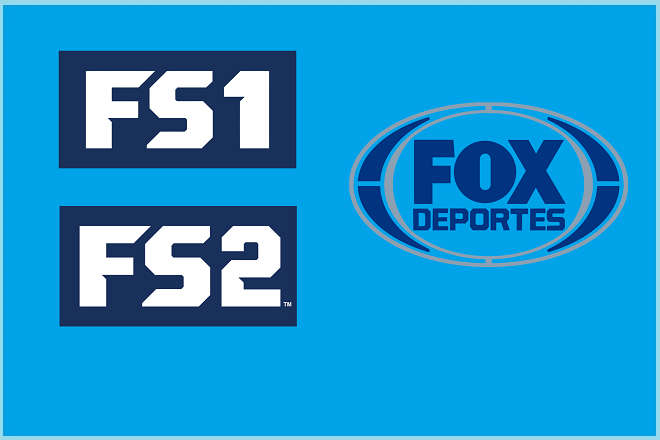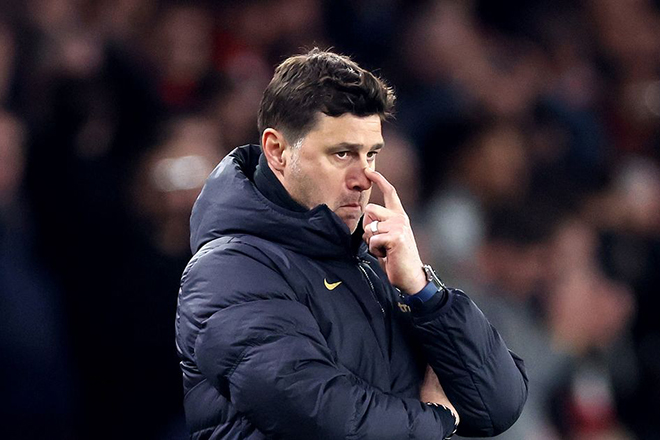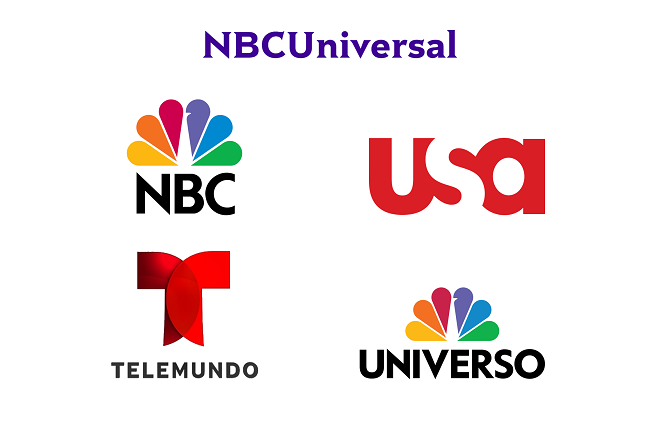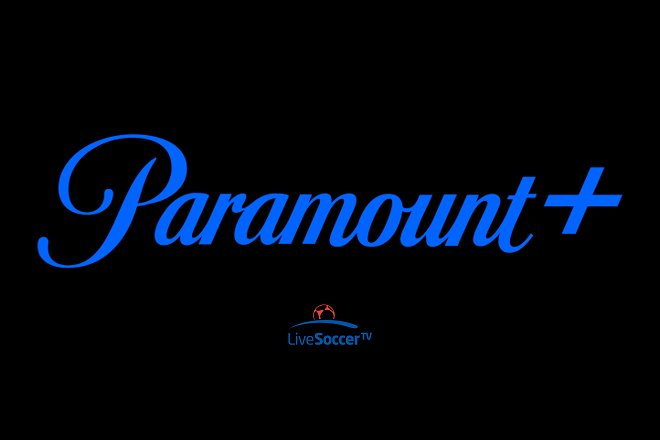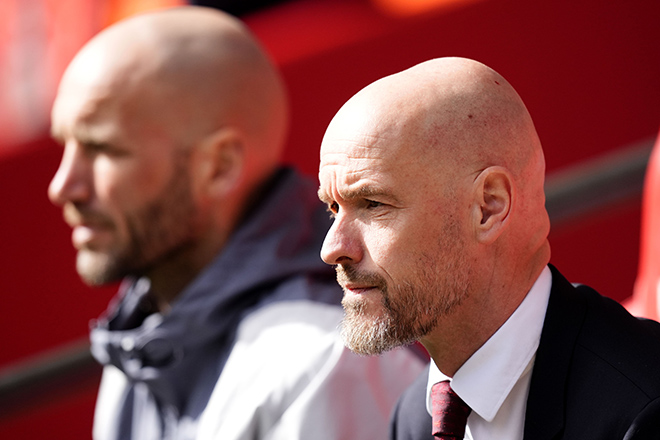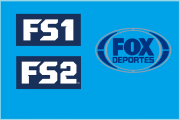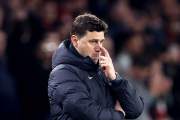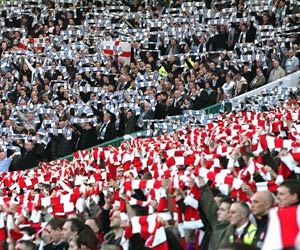 As City supporters are quick to point out, United doesn't even play in Manchester, their home being located in the borough of Trafford.
As City supporters are quick to point out, United doesn't even play in Manchester, their home being located in the borough of Trafford.
There can be no doubt, however, that when Manchester football is mentioned it is the team in red that most people think of.
The rivalry between Manchester United and Manchester City goes back a long way, almost as far back as the beginning of football in England. And the two clubs have been contesting a local derby, on and off, for nearly 130 years!
Read on for a brief history of the rivalry between the two big Manchester football clubs.
Foundations
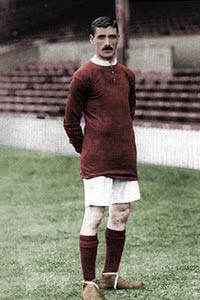
Billy Meredith - Welsh superstar who played for both Manchester City and Manchester United
The progenitor of Association Football was the rough and tumble “Shrovetide Football” of medieval times, which sometimes involved entire mobs of people, careening violently through towns and villages as they contested possession of an inflated pig's bladder.
By the mid-1800s these rabble-rousing events had developed into relatively genteel games involving carrying, tossing and kicking a ball. There were as many different rules to these games as there were games being played, but generally they diverged into two main categories of football.
One type of football emphasized carrying and running with the ball. This became known later as “rugby football.” The other placed the emphasis on kicking the ball and otherwise controlling it mostly with the feet. This version of football was known as the “dribbling game.”
In the 1860s the “Football Association” was created to codify and bring order to the rules of the dribbling game, and this is how the dribbling game came to be called “association football.” Soccer if you like!
The association football clubs that we now know as Manchester United and Manchester City were founded not long after the creation of the Football Association, and as is very common, both clubs were started up under different names.
Manchester United
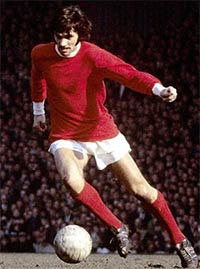
George Best became legend of Manchester United with 470 appearances between 1963 and 1974, scoring 179 goals.
The club that became Manchester United was created in 1878 by workers in the Carriage and Wagon Department of the Lancashire and Yorkshire Railway depot at Newton Heath, a district of Manchester. They played under the name of Newton Heath LYR Football Club.
After spending its first few years playing against other works teams, Newton Heath joined a league known as the “Football Alliance” in 1889. At that time the Football Alliance was a rival to the “Football League.” The Alliance soon merged with the Football League, however, and Newton Heath was elected to the League's First Division.
But hard financial times descended on Newton Heath, and in 1902, with debts of nearly £3000 (a lot of money in those days), the club was served with a “winding-up order.” In other words, Newton Heath was ordered to liquidate its assets to pay off debts.
This could have spelled doom for Newton Heath. But team captain Harry Stafford was ;oath to let this happen and he found investors to pay off the creditors in exchange for an interest in running the club. John Henry Davies, a local brewery owner, was the principle investor in the Newton Heath club and he became its president.
Davies who decided a name change was necessary.
After several interesting false starts, including “Manchester Central” and “Manchester Celtic,” Newton Heath changed its name to Manchester United.
Davies also changed the club colors. Today's football fans will be familiar with the Newton Heath colors of the late 19th and early 20th Century because many a modern Manchester United supporter spotted wearing the green and gold livery of Newton Heath in protest of the Glazer family that currently owns United.
Davies changed the club colors to the red and white we know so well today.
Manchester City
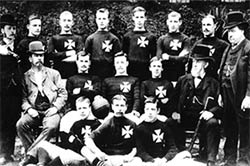
Gorton Football Club - Manchester City FC's predecessor
Manchester City was founded in the Manchester suburb of Gorton in 1880 as a church team. “St. Mark's (West Gorton)” it was called, and was it originally established to offer a diversion for impoverished youth in the local area, many of whom took up gang life, behaved violently and abused alcohol.
In 1884 the club dropped the “St. Mark's” appellation and became known as “Gorton A.F.C.” (Association Football Club). In 1887 the Gorton Football Club turned professional and moved to a new pitch in the district of Ardwick. They then changed their name to “Ardwick A.F.C.”
In 1891 Ardwick won the Manchester Cup, beating Newton Heath 1-0. Largely due to this success, Ardwick was admitted to the Football Alliance, and when the Alliance merged with the Football League, Ardwick became a founding member of the Football League's new Second Division.
During the 1893-1894 season financial difficulties befell Ardwick AFC. The club reorganized itself and emerged in 1894 with a new name intended to draw wider appeal.
Manchester City Football Club was born.
The First Derbies
On Saturday the 12th of November 1881, St. Mark's (West Gorton) football club hosted a match against another local team, Newton Heath LYR Football Club. Newton Heath won 3-0. A newspaper at the time called the contest “a pleasant match.” This was the first ever encounter between the two clubs that would evolve into Manchester City and Manchester United, and thus could be called the first Manchester Derby.
In October of 1891 the two clubs met as members of the Football Alliance. By this time St. Mark's ( West Gorton) were known as Ardwick A.F.C. That didn't matter as they were beaten 3-1 at Newton Heath's North Road pitch.
But the two clubs didn't meet in a Football League match until November 1894, when Newton Heath traveled to Manchester City's Hyde Road stadium in Ardwick. The result was a 2-5 victory for “the Heathens.”
In the intervening years the clubs met at various times and stages of their development, but it was a while before they met as members of the top league in the land. That derby came in December of 1906 at Hyde Road, when both City and United were First Division clubs. City won that one 3-0.
In those days the derbies between the two Manchesters must have lacked the intensity we see today. Indeed, it was common in the first half of the last century for fans in the Manchester area to support both clubs, attending one team's match one week and the other team's match the next.
But dual support faded over time and eventually became a rare thing. By the 1970s the Manchester Derby was often a hostile affair.
Later Derbies
In 1970, for example, Manchester United's great Irish winger George Best broke the leg of City's Glyn Pardoe during a tackle. Pardoe's leg break was so bad doctors feared they'd have to remove it. Fortunately this proved unnecessary and the leg remained on the man. But Pardoe was out of the game for nearly two years as a result of the injury.
In 1974 City's Mike Doyle and United's Lou Macari were both red-carded in a derby, yet both refused to leave the field! Only after the ref ordered the teams off the pitch did the scoundrels finally accept their punishment.
Yet despite the enmity a touching moment in the history of the Manchester Derby deserves mention.
The poignant ending to Denis Law's magnificent career
The great Scottish striker Denis Law, like the “Welsh Wizard” Billy Meredith long before him, was a big star who played for both Manchester City and Manchester United during his career.Law signed for City in 1960, and a year later went to Torino in Italy for a season. When he returned to England he signed for Manchester United. Law played for United from 1962 until 1973, then signed again for City, with whom he finished his playing career a year later.
City's final match of the 1973-1974 season was a derby against United. This match had special significance because United were on the verge of relegation and needed a win. United needed help from other clubs that day, too, to guarantee survival in the top flight. But their first priority was to beat City, in whose ranks stood United Old Boy Denis Law, now in the twilight of his playing days.
After 80 minutes of scoreless football Law, with his back to the United goal, received a pass from team mate Francis Lee. Law reflexively hit the ball with his heel and beat United keeper Alex Stepney. United lost 1-0 and were relegated to the Second Division.
Swallowed up in the jubilation of his City teammates, Denis Law refused to celebrate his goal. He was substituted almost immediately after scoring and left the pitch in sadness, his head hanging low. He never played professional club football again and retired from the game soon after.
Later he said the back-heeler against his old club was a goal he almost wished he hadn't scored.
The Manchester Derby Today
.jpg)
The Manchester derby expectations have spiked in recent years due to the resurgence of Manchester City.
Manchester United has an illustrious history. From the “The Busby Babes” whose promise was tragically cut short when their plane crashed in Munich in 1958, to the rebuilt squad that won the European Cup in 1968, the club has continued to go from honor to honor, including 18 First Division/Premier League championships, 11 FA Cups, 3 European Cup/Champions League triumphs and a UEFA Cup Winners Cup. There have been many other trophies in between.
Manchester City have silverware to show off too, with 2 First Division championships, 4 FA Cups and a European Cup Winners Cup, among various lesser honors.
But clearly City's trophy cabinet is a smaller one than United's and this has made City the second team in Manchester. The results of the Manchester Derby over the years prove United's dominance. (132 games played, with United winning 52 of them, City 36, and 44 draws.)
Indeed, the long-lasting quality gulf between City and United has rendered the Manchester Derby less important than the United-Liverpool rivalry.
In recent years, however, City have been making noise with the injection of foreign cash to buy big name players, and their presence in the English Premier League may now be almost taken for granted.
Last season City finished 5th to United's 2nd, and contended for a higher finish almost the entire campaign.
This season so far City have had their ups and downs, but they currently sit 4th in the Premier League behind United's current 2nd.
Results like these guarantee that the rivalry between Manchester United and Manchester City will take on new meaning to the supporters of both clubs. And if City manages to achieve their goal and topple United from their perch as Manchester's better team, the Manchester Derby will assume a greater importance than ever.

